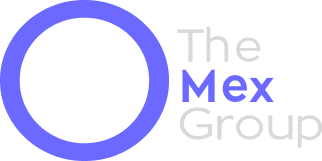Interviews can feel like a high-pressure performance, but preparation is the key to confidence.
By understanding what hiring managers are looking for and crafting thoughtful responses, you
can shine in any interview. Here, we break down some of the most common interview
questions and provide tips for answering them effectively.
1. Tell Me About Yourself
This question is an opportunity to set the tone for the interview. Instead of narrating your life
story, focus on your professional background, achievements, and what excites you about the
role.
Pro Tip: Structure your answer using past, present, and future. Briefly discuss your past
experiences, highlight your current skills, and connect them to the job you’re interviewing for.
Example:
“I have a background in marketing with five years of experience specializing in digital
campaigns. In my last role, I successfully increased brand awareness by 30% through targeted
strategies. I’m now excited to bring my expertise to a company like yours, known for its
innovative approach to marketing.”
2. Walk Me Through Your Resume
This question is your chance to narrate the story of your career. Highlight key achievements
in each role, especially those relevant to the job you’re applying for.
Example:
“After earning my degree in computer science, I started as a junior developer at TechCorp,
where I improved system efficiency by 15%. I then transitioned to a project lead role at
CodeWorks, managing a team of five developers. My experience has given me a strong
foundation in both coding and leadership.”
3. How Did You Hear About This Position?
Hiring managers ask this to gauge your interest and how proactive you are in finding
opportunities.
Example:
“I came across this position on LinkedIn and was immediately drawn to it. Your company’s
reputation for innovation and community impact aligns perfectly with my values.”
4. Why Do You Want to Work at This Company?
This question is your chance to showcase your research. Employers want to know if you’ve
taken the time to understand their mission and values.
Example:
“I admire your company’s focus on sustainability and its commitment to creating cutting-edge
technology. I’m passionate about developing solutions that make a positive impact, and I’m
excited to contribute to a team that shares those values.”
5. Why Do You Want This Job?
This is about aligning your skills and career aspirations with the role.
Example:
“This job offers the perfect opportunity to use my customer service experience while growing
in a leadership capacity. I’m excited to help enhance client satisfaction while advancing my
own skills.”
6. Why Should We Hire You?
Here, you need to show what makes you unique. Highlight your skills, experiences, and
enthusiasm for the role.
Example:
“My background in sales and data analytics allows me to identify market trends and create
strategies that drive growth. My ability to combine data-driven decisions with strong
interpersonal skills sets me apart.”
7. What Can You Bring to the Company?
Think about your unique contributions and how they align with the company’s goals.
Example:
“I bring a proven track record of streamlining processes to improve efficiency, as well as a
collaborative mindset that fosters team success. I’m confident my skills will contribute to the
company’s goals.”
8. What Are Your Greatest Strengths?
Choose strengths relevant to the job and back them up with specific examples.
Example:
“I excel at problem-solving and communication. In my last role, I resolved a major client
issue by developing a tailored solution, improving customer satisfaction by 20%.”
9. What Do You Consider to Be Your Weaknesses?
This question is about self-awareness and growth. Be honest, but also show how you’re
working to improve.
Example:
“I sometimes focus too much on details, which can slow me down. However, I’ve started
using time management tools to stay on track.”
10. What Is Your Greatest Professional Achievement?
Use the STAR method (Situation, Task, Action, Result) to structure your answer.
Example:
“In my last role, the company faced declining sales in a key product line. I analyzed customer
feedback, revamped the marketing strategy, and launched a campaign that increased sales by
25% within three months.”
Final Thoughts:
Preparation is the key to acing any interview. By practicing these common questions and
tailoring your responses to the job and company, you’ll feel more confident and leave a
lasting impression. Remember to be authentic, stay positive, and let your enthusiasm for the
role shine through!

